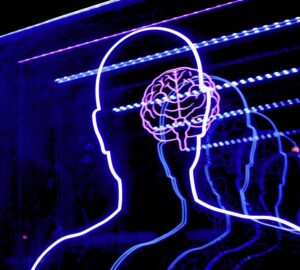A patient suffering from cluster headaches in Canada has been granted access to psilocybin mushrooms. This decision came after a federal court ruled that the country’s health agency must reconsider its initial refusal, which was deemed “unreasonable” and “unintelligible.”
Canada’s special access scheme for psilocybin provides a narrow route towards psychedelic therapy, and more than 150 people have undergone treatments since 2022. Jody Lance, a former land surveyor in his 50s from Alberta, is the first cluster headache patient to gain access to psychedelic-assisted therapy. His legal team has raised questions about why it is easier to access physician-assisted death than psychedelic-assisted therapy in Canada.
“This is a historic win for Mr. Lance that sets a precedent for others in need of medical psilocybin,” said Spencer Hawkswell, chief executive officer of TheraPsil, a psychedelic advocacy group. “While we celebrate this milestone, thousands of Canadians still need regulations to access these treatments. We are thankful to Minister Mark Holland for his compassion, and will continue to push for regulations that apply equally to all Canadians.”
READ: Redesigning Psychedelic Mushrooms to Never Cause a “Bad Trip”
Lance — who has suffered from cluster headaches for the past seven years, which are excruciating and also referred to as “suicide headaches” — has unsuccessfully attempted to treat the condition with prescribed medications. He first tried psychedelic mushrooms after his neurologist suggested they helped other patients find relief.
For patients who require specific doses of psilocybin, access through the illegal market might not always be simple. Lance said he applied to the special access program in July 2023, with his neurologist, William Jeptha Davenport, to help others with his condition. “I’m very relieved to finally get approval,” Lance told the National Post. “I hope that going forward others won’t have to go to court to get the medicine their doctors have recommended.”
Officials from Health Canada had argued that Lance had not exhausted all other avenues of treatment, but his legal team responded by saying that the stipulation is not a requirement for people seeking medical assistance in dying. “He tried a whole laundry list of medications and dozens of different combinations,” human rights lawyer Nicholas Pope, who helped prepare Lance’s exemption application, told CBC. “Some worked for a brief period of time and then stopped working, or even made the headaches worse.”
How to Grow Shrooms Bundle
Take Both of Our Courses and Save $90!
Learn More
“He’s found a treatment that works for him and makes life bearable. But it’s absurd: If he couldn’t get access to this treatment, then [medical assistance in dying] really would be a legitimate possibility. Mr. Lance should be allowed to use this for medical purposes with dignity and not be called a criminal for it.”
READ: Can Psychedelics Treat Physical Pain?
The denial of access to the one medicine that provides relief prompted a judicial review application, which federal judge Simon Fothergill granted on May 24. Fothergill said that Lance’s charter rights had not been taken into proper consideration and ordered a “redetermination” because the original decision lacked the “requisite degree of justification, intelligibility, and transparency.”
In the ruling, the judge referred to experts who have described cluster headaches as “capable of inflicting the most severe pain known to science.”
High-quality evidence remains scarce of psilocybin’s beneficial effect on cluster headaches, but at least one clinical trial has observed a small reduction in attacks, while anecdotal evidence continues to mount.
DoubleBlind is a trusted resource for news, evidence-based education, and reporting on psychedelics. We work with leading medical professionals, scientific researchers, journalists, mycologists, indigenous stewards, and cultural pioneers. Read about our editorial policy and fact-checking process here.
DoubleBlind Magazine does not encourage or condone any illegal activities, including but not limited to the use of illegal substances. We do not provide mental health, clinical, or medical services. We are not a substitute for medical, psychological, or psychiatric diagnosis, treatment, or advice. If you are in a crisis or if you or any other person may be in danger or experiencing a mental health emergency, immediately call 911 or your local emergency resources. If you are considering suicide, please call 988 to connect with the National Suicide Prevention Lifeline.
DoubleBlind Mag Read More



